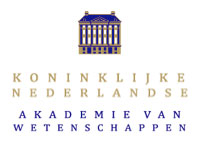The Royal Netherlands Institute of Southeast Asian and Caribbean Studies (KITLV) is a KNAW research institute. It is dedicated to the study of societal challenges, focusing on the histories and afterlives of colonialism in the Caribbean, Southeast Asia, and the Netherlands. Departing from a globally comparative and interdisciplinary perspective, the KITLV engages primarily with the broad themes of Mobility and Belonging; State, Violence, and Citizenship; and Climate Governance.
Research at KITLV is interdisciplinary by nature and characterized by approaches including (1) a strong historical dimension exploring (dis)continuities from the (pre)colonial to the postcolonial period and (2) an anthropological perspective; both of which aim to bring human agency into focus and investigate questions concerning motivation and signification; while (3) a political approach focuses on broader frameworks of power that mediate between global forces and local actors. History, anthropology, and the study of politics and language all offer comparative approaches for opening windows to wider global connections. Archival research, field work and textual and visual analysis are vital to this enterprise. KITLV research is characterized by an ongoing reflection on the historical linkages between (post)colonial scholarship and collections policies. This implies methodological reflection on the uses of colonial archives, and on the meaning and impact of e-technologies in academic research and data management.
KITLV invests in three long-term research themes: State, Violence and Citizenship, Mobility and Belonging and Climate Governance. These themes, relevant to the processes of post-colonial state formation and globalisation in South East Asia and the Caribbean at large, are connected by interrelated questions concerning the dynamics of power, meaning and belonging. KITLV aims to translate these themes into agenda-setting projects conducted by research teams consisting of senior scholars, postdoctoral researchers, PhD candidates and visiting fellows.
State, Violence and Citizenship
Research in this theme focuses on regime change, political violence and the articulation of citizenship. It is directed at various levels of governance in order to investigate the embeddedness of the state in society, with a focus on violent conflicts and reconciliation, processes of ethnic, religious and national belonging, and the articulation of forms of citizenship. Over the past years, a series of externally funded projects in this area were conducted at the KITLV. These focused on changes at the regional level in Indonesia (‘Renegotiating Boundaries’, ‘In Search of Middle Indonesia’, ‘From Clients to Citizens’, and ‘Shifting Elite Networks’) as well as on decolonization and governance in the Caribbean.
Mobility and Belonging
The movement of people, ideas and goods, and processes of identification and differentiation that often transcend (former) colonial borders and imperial frameworks are central to this theme. Notions of ‘religion’, ‘origin’, ‘tradition’, ‘authenticity’ and ‘modernity’ and the institutional contexts in which these are framed and authorized are vital in tracing complex processes of belonging and exclusion. Recent projects that address this theme include ‘Articulating Modernity’ on the history of popular music in Southeast Asia, ‘Postcolonial Migrations’ from various former Dutch colonies to the Netherlands, ‘The Javanese Diaspora’, and ‘Java and the Idea of Greater India’.
Governance of Climate Change Adaptation
The research in this cluster focuses on the impact of climate change in Southeast Asia and the Caribbean, as viewed from different disciplinary and interdisciplinary perspectives. Current projects that address this theme are ‘Climate change and governance in Indonesia and the Caribbean: A pilot program on marine protected areas (MPA’s) and coastal nature reserves’, ‘Typhoon disaster politics in Asian history’, Bringing politics back in: Flooding and climate adaptation in Indonesia’ and ‘Climate change adaptation of coffee production in Puerto Rico’. One of the aims of this cluster is to look at tropical archipelagoes comparatively through specific these such as climate related disasters, biodiversity, land-sea connections, and heritage. Another is to bring our own social science and humanities approaches into conversation with perspectives from the natural sciences.
A list, in alphabetical order, of the researchers currently working at the KITLV/Royal Netherlands Institute of Southeast Asian and Caribbean Studies.
KITLV is an institute of the Royal Netherlands Academy of Arts and Sciences (KNAW).




